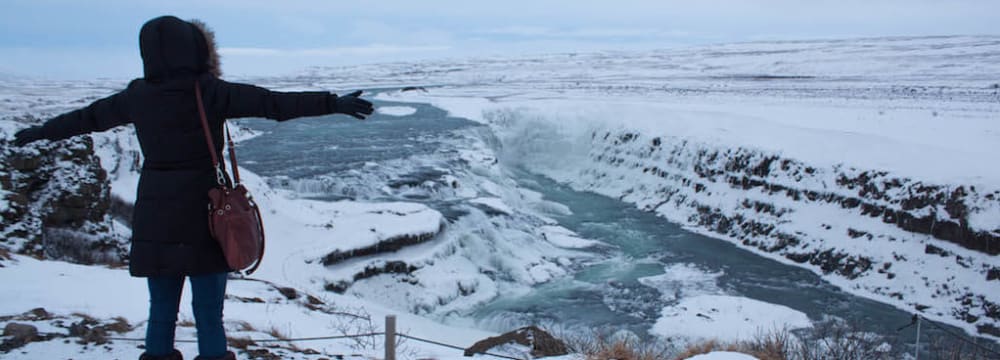The positives and negatives of visiting and renting a car in Iceland during the winter season.
During the winter period, safety can sometimes be under threat due to weather and road conditions. There are a number of precautions you can take to help ensure the safety of you and your party, this includes the type of vehicle you drive, monitoring weather predictions and also, driving safely.
Safety can come down to common sense, such as ensuring everyone is wearing a seatbelt, children are in child seats, packing warm, waterproof clothing, and also avoiding dangerous areas. However, sometimes people can either not be used to or not expect certain conditions. For example, people from more temperate climates may not be used to driving on snow and ice, or may not even be prepared for the blistering cold temperatures and will come without any decently warm clothing.
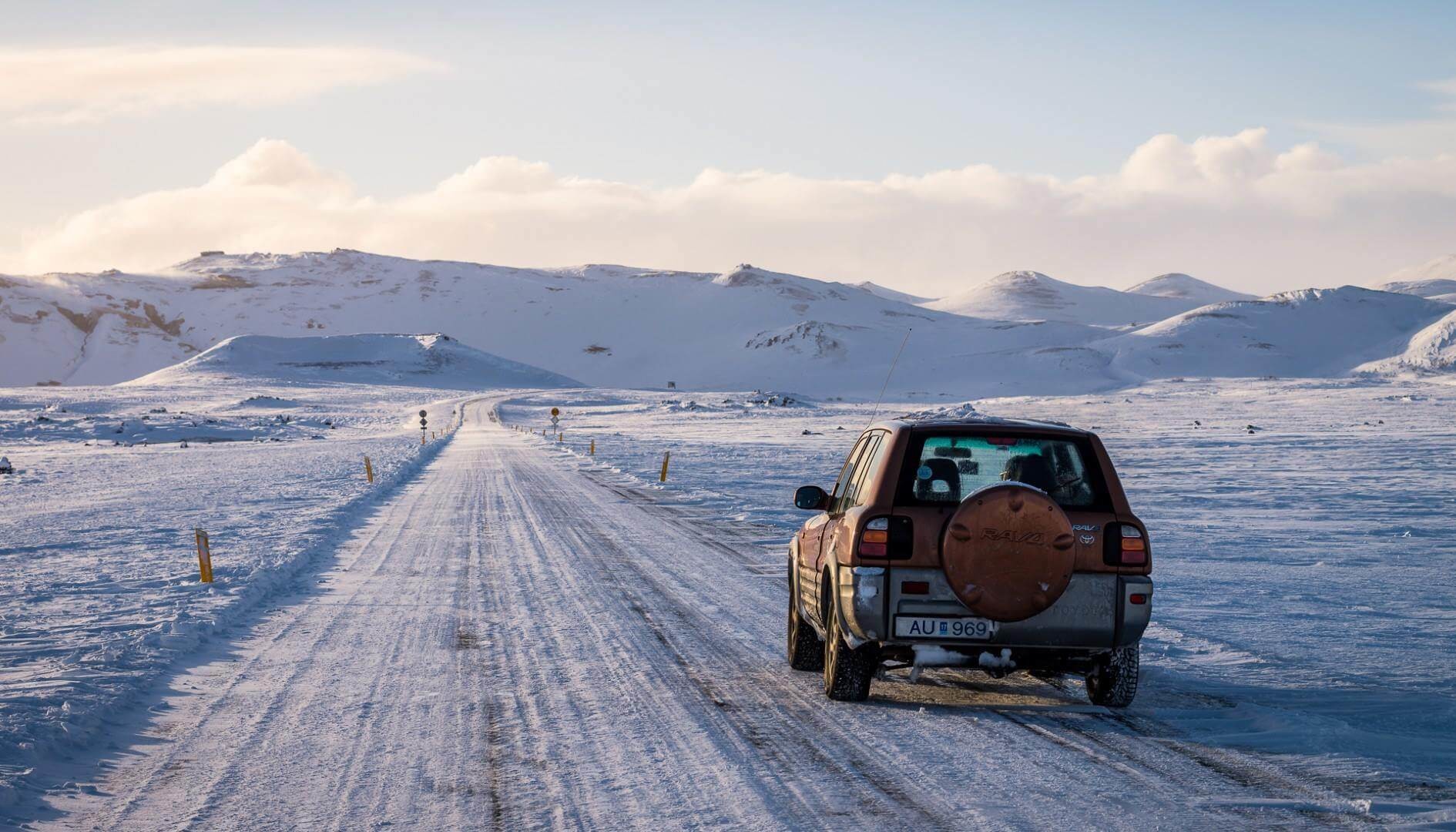
When it comes to conditions, there are many ways to be safer and prepared. So often I have seen people trying to drive in the 'countryside' in a small Hyundai i10 during winter. Whilst this is doable, it is definitely not recommended and can be very unsafe. Smaller cars usually have lower ground clearance, and this means when there is heavy snow the chance of getting stuck is much higher. Renting a 4x4 with a high ground clearance is highly recommended during the winter months to avoid such circumstances.
Read More: - Do I need a 4x4 in Iceland?
Getting stuck is a safety risk to you and your party, as well as the search and rescue team who would be tasked with coming to help you. The SAR team is a crowdfunded volunteer organization and rescues can cost them a lot of money depending on the equipment they need to use.
Aside from this, remember to always drive carefully. During the night, temperatures can drop to well below freezing, which leads to icy roads and therefore, slippery conditions. It's very easy to lose control of the vehicle when the roads are frozen and doing so can lead to devastating consequences.
Iceland during winter is extremely cold, so remember to bring warm and waterproof clothing. Packing additional clothing as a 'just-in-case' is also recommended. Always plan your day out of the morning by checking the route accessibility and road conditions (as mentioned in the 'Road Accessibility' section below), and also regularly checking weather conditions. This will decrease your chances of getting caught up in a snowstorm, or worse, being stuck.
Read More: - What to pack for Iceland this winter?
Road Accessibility
The winter weather in Iceland can be very rough and, therefore, road closures can be expected. There are some roads which are also closed for the whole winter period, these roads are called 'F-roads'.
F-roads are mountain roads that are very popular with more adventurous travelers. However, they cannot be accessed from September to July as the conditions on the roads don't allow for any travel.
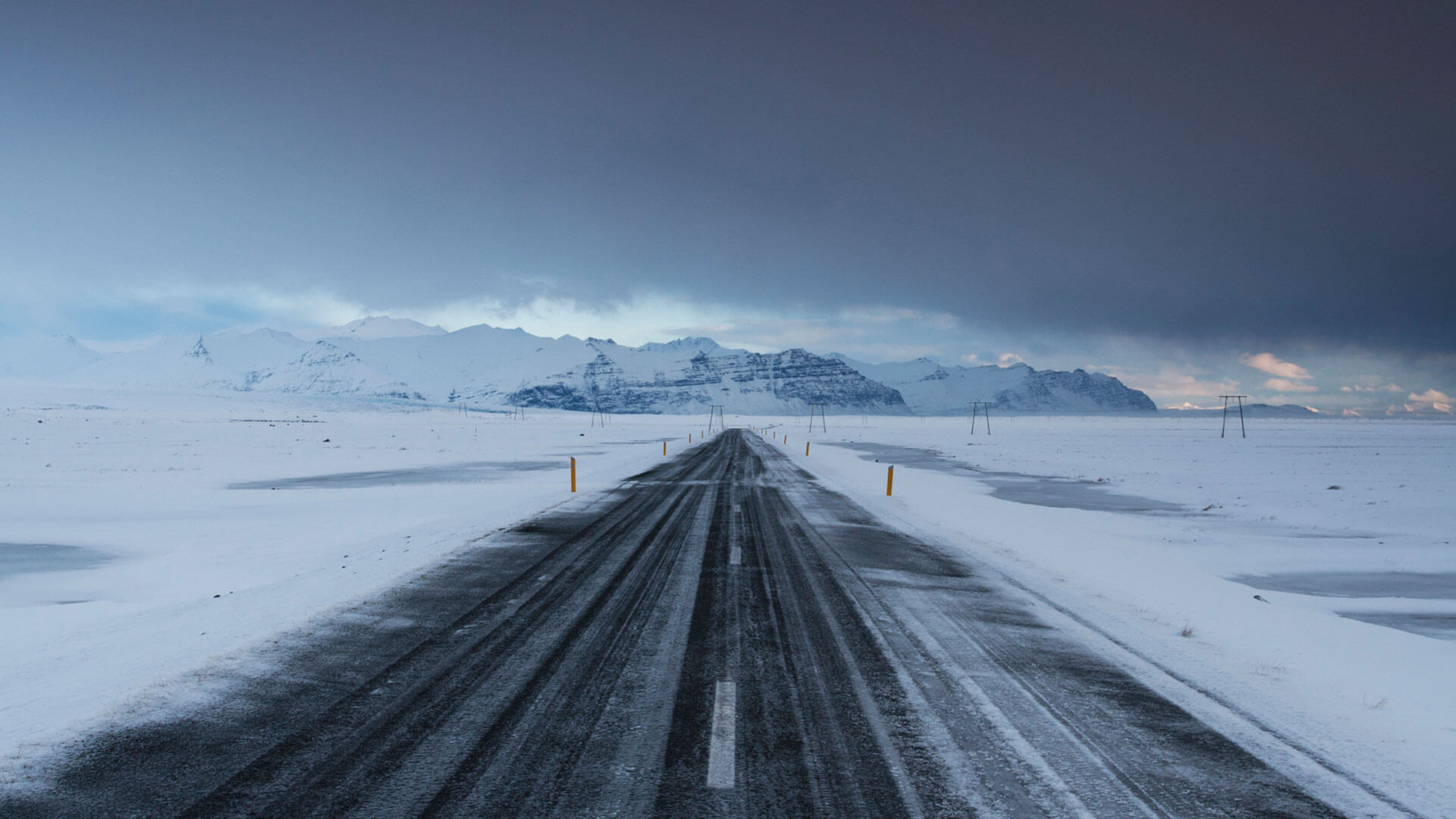
The ring road is generally accessible during the winter period although, as previously mentioned, there can sometimes be road closures. The closures can be spontaneous because, as you may know, the weather in Iceland can be very unpredictable.
It's best to frequently check weather and road updates. You can check them here. Safetravel will regularly post updates regarding road conditions and also closures.
Read More: - Driving in Iceland
Daylight
The winter season in Iceland is very long, 8 months long in fact. That alone is tough enough, but factor in the extremely short daylight hours and it becomes almost unbearable. From November to March, the average hours of light per day are around 5 hours. And, that's on a good day!
If there are clouds or heavy rain, then Iceland may not see any sun at all. The winter months can be very depressing and I wouldn't be surprised if Vitamin D tablets are the highest purchased product from most grocery stores during this period.
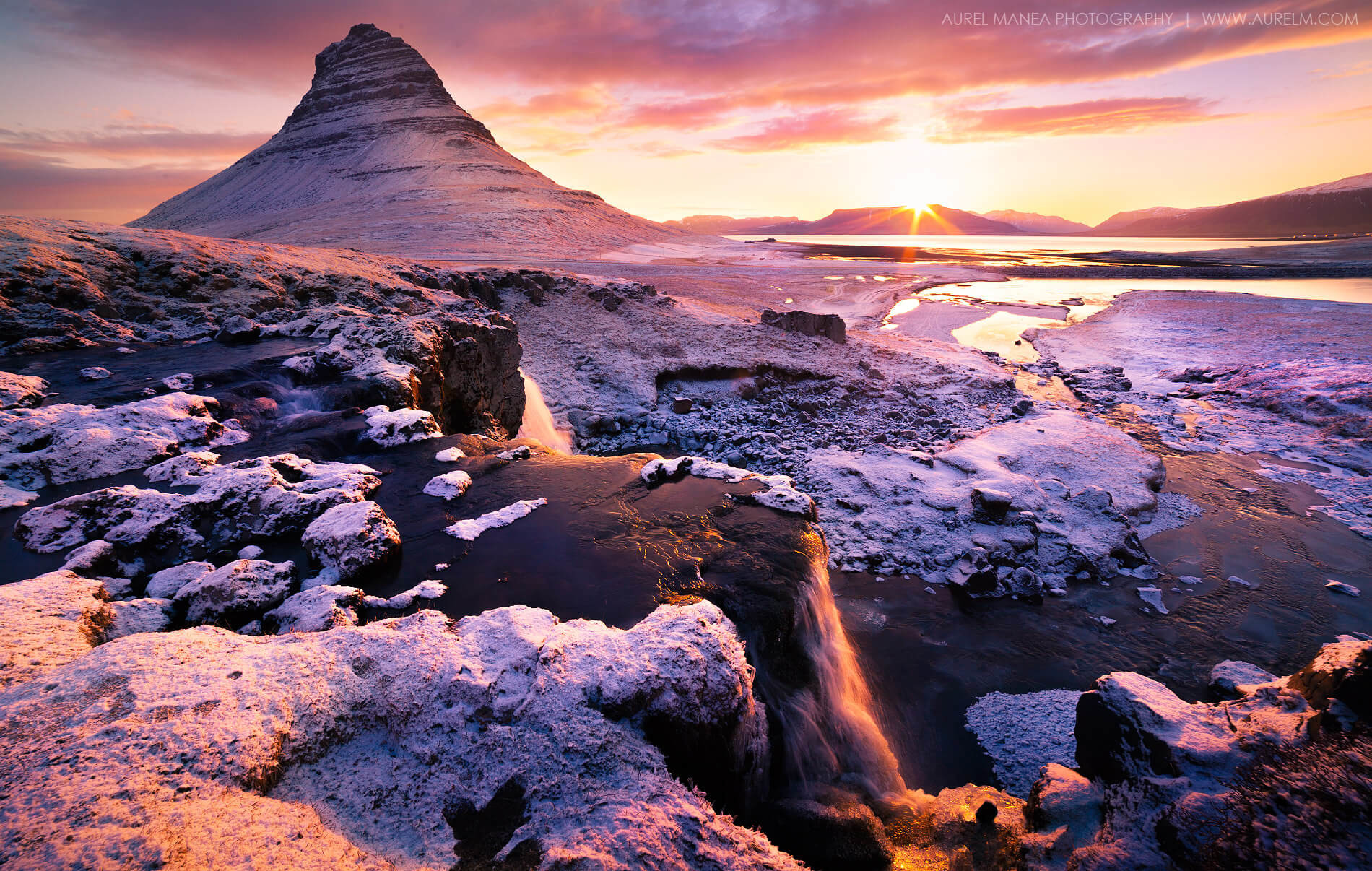
The short daylight hours can really limit your experience, however, there are ways to at least optimize the daylight you do have available. Now, this would include driving in the dark... a lot. I would recommend getting up early and start driving to your targetted attraction, therefore, by the time you arrive, it will most likely be light.
Of course, there are times where it may not be light for very long and that is sadly unavoidable and will limit your attraction accessibility. However, there is one great benefit of the lesser sunlight in winter: The Northern Lights.
The Aurora Borealis is one of the main reasons, if not the main reason, most tourists will choose to come to Iceland in the winter period. If you manage to catch the Northern Lights then it will definitely make up for the depressing darkness.
Prices
Car rentals in Iceland are usually broken down into 3 seasons: Low, Shoulder and High. The Low season is typically wintertime, the high season is summertime and shoulder is everything in between. High season is where the prices are at their highest, whilst the shoulder seasons are where prices will be somewhere in between the highest and lowest prices.

During the winter period (the low season) prices will be at their lowest, and usually by a significant amount. The seasons are usually the same for all kinds of services, including hotels and even tours! So, if you're on a budget or just looking to avoid spending over the odds, then coming during the winter period will financially be the most beneficial for you.
Fewer Crowds
The wintertime is generally a period where people avoid traveling, there are many reasons for this (which I won't bore you with now) but one of the reasons is the cold weather. Considering Iceland is known for its rough winters with heavy snow, freezing temperatures and strong winds, a lot of people tend to avoid traveling here during the winter period and opt to come in the much warmer summer.
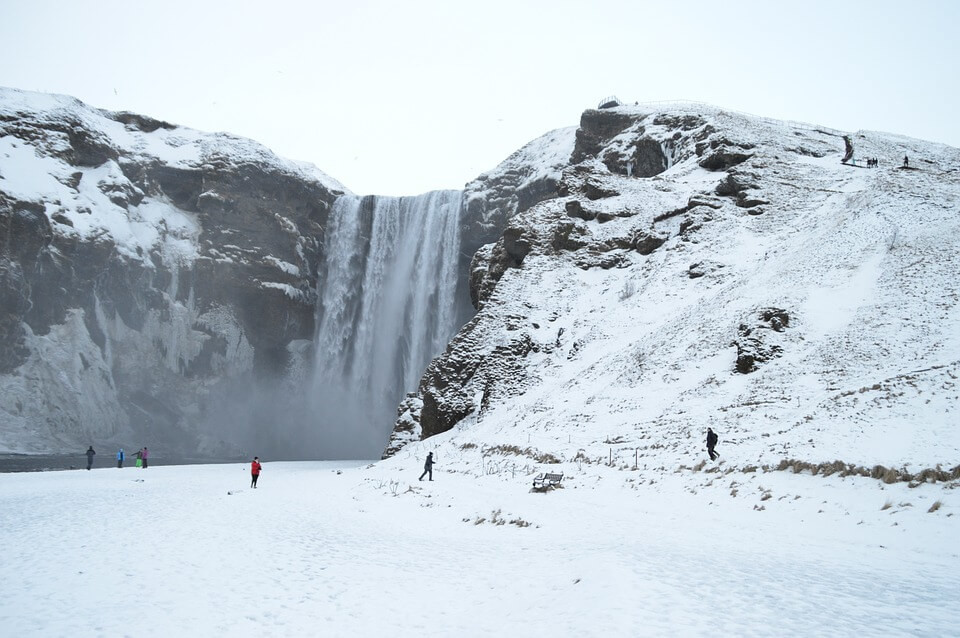
However, don't let the weather deter you as Iceland is extremely beautiful in the winter. The snow makes for some fantastic landscapes and the glistening sunset is something to behold. The fewer travelers will allow you to fully experience Iceland's attractions, and you will be especially grateful for this if you are a photographer as other people won't get in the way of your shot!
During the summer, most of the attractions in Iceland will be filled with tourists. There are regular day tours visiting the areas as well as people who have rented cars to drive there. So chances of you being alone or with a minimal crowd are very low unless you go late at night!
Winter Camping
Camping in Iceland can be an amazing experience, however, it can also be a very tough experience. There are many benefits to camping such as the budget benefits, as you won't need to pay for hotels and also not restricting your plans, as you can essentially stay at any campsite. There's no need to rush to the next town for your check-in or wake up early for your early checkout.
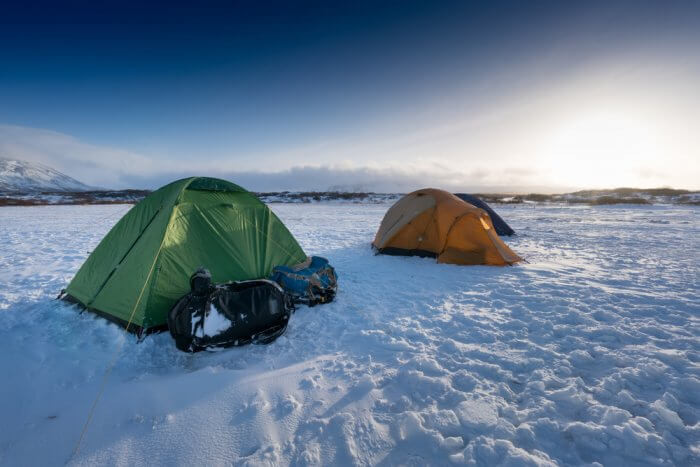
Camping during the winter months is a completely different experience to camping during the summer period. Whilst it is doable, it is certainly not recommended over hotels. During the summer, I would certainly recommend camping over staying in a hotel as the views and experience are something to behold. However, winter is much tougher. Yes, most campers can have overnight heaters but the nights can sometimes be so cold that it exceeds the benefits of the heater.
The winds can also be very strong, which makes for a restless night and the chances of heavy snow also increase the chances of you potentially being stuck and very wet. Aside from this, most campsites are closed during winter. That means facilities will be closed and therefore, you will be unable to use the bathrooms, showers or cooking areas.
If you are an experienced camper and don't mind 'roughing it' then you may find winter camping to be a great experience. Otherwise, if you're not so used to camping, I would recommend paying the extra bit of money for the comfort of a warm hotel. The winter period is low season and, therefore, hotel prices will be much lower and more affordable.
